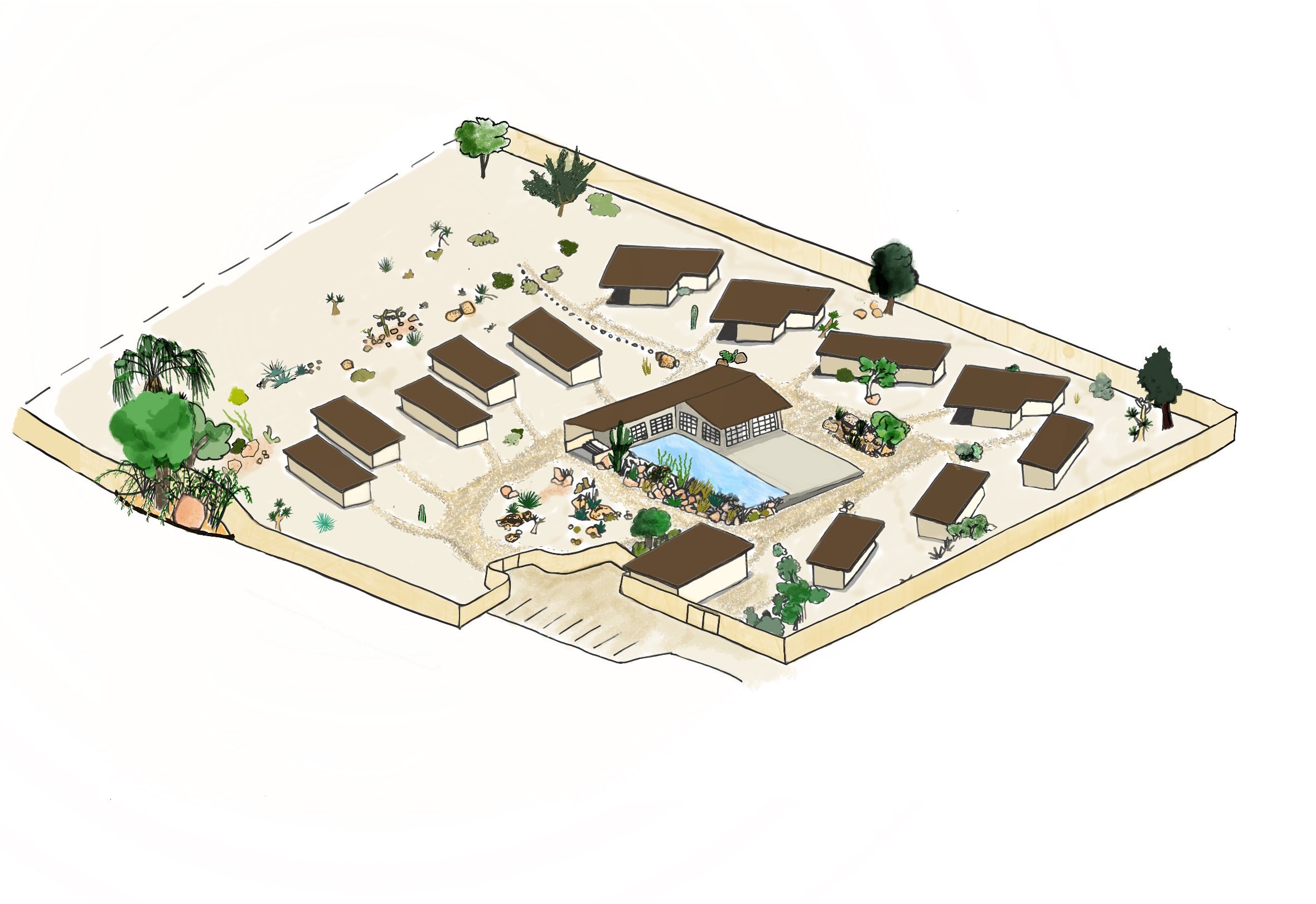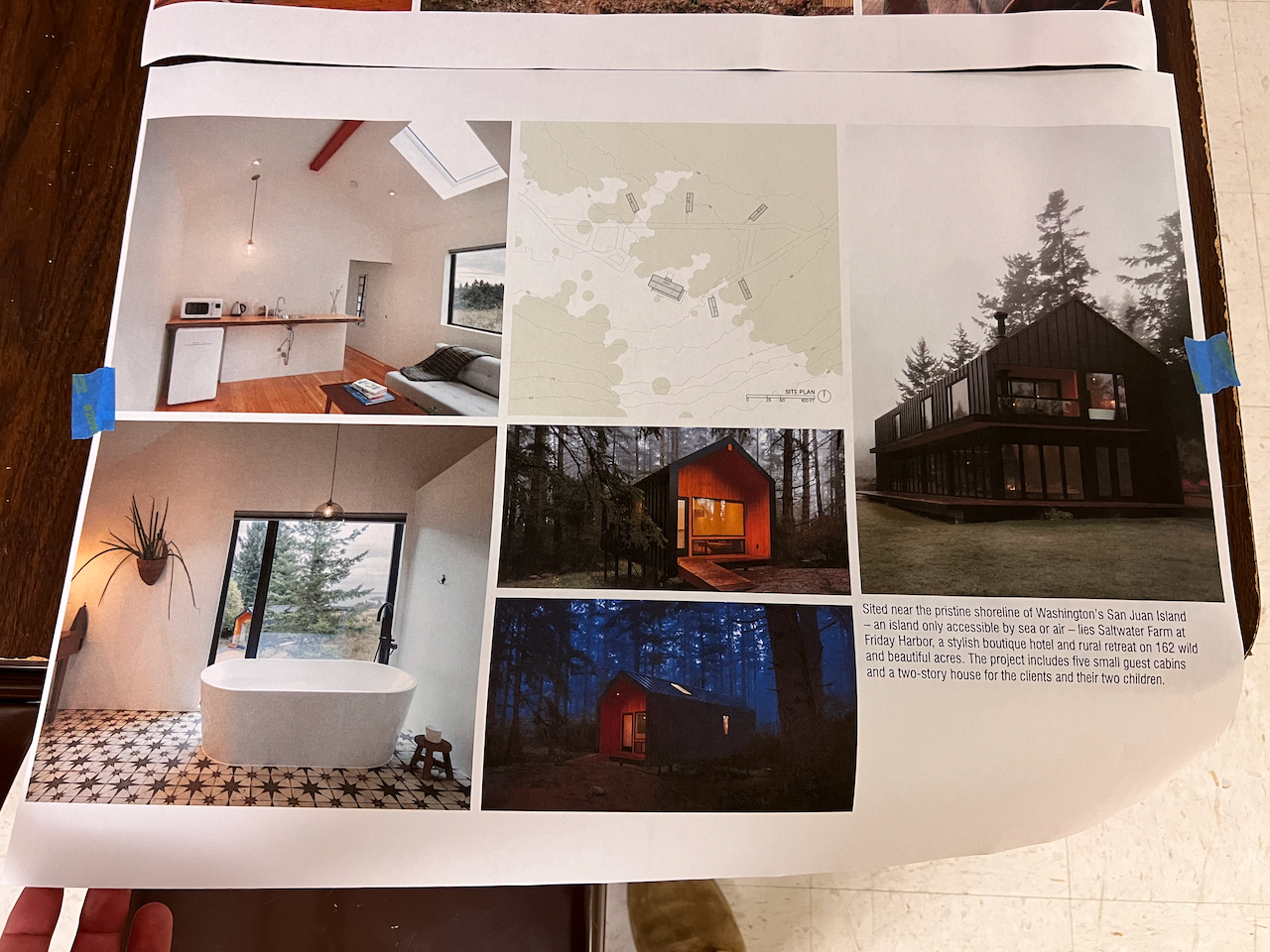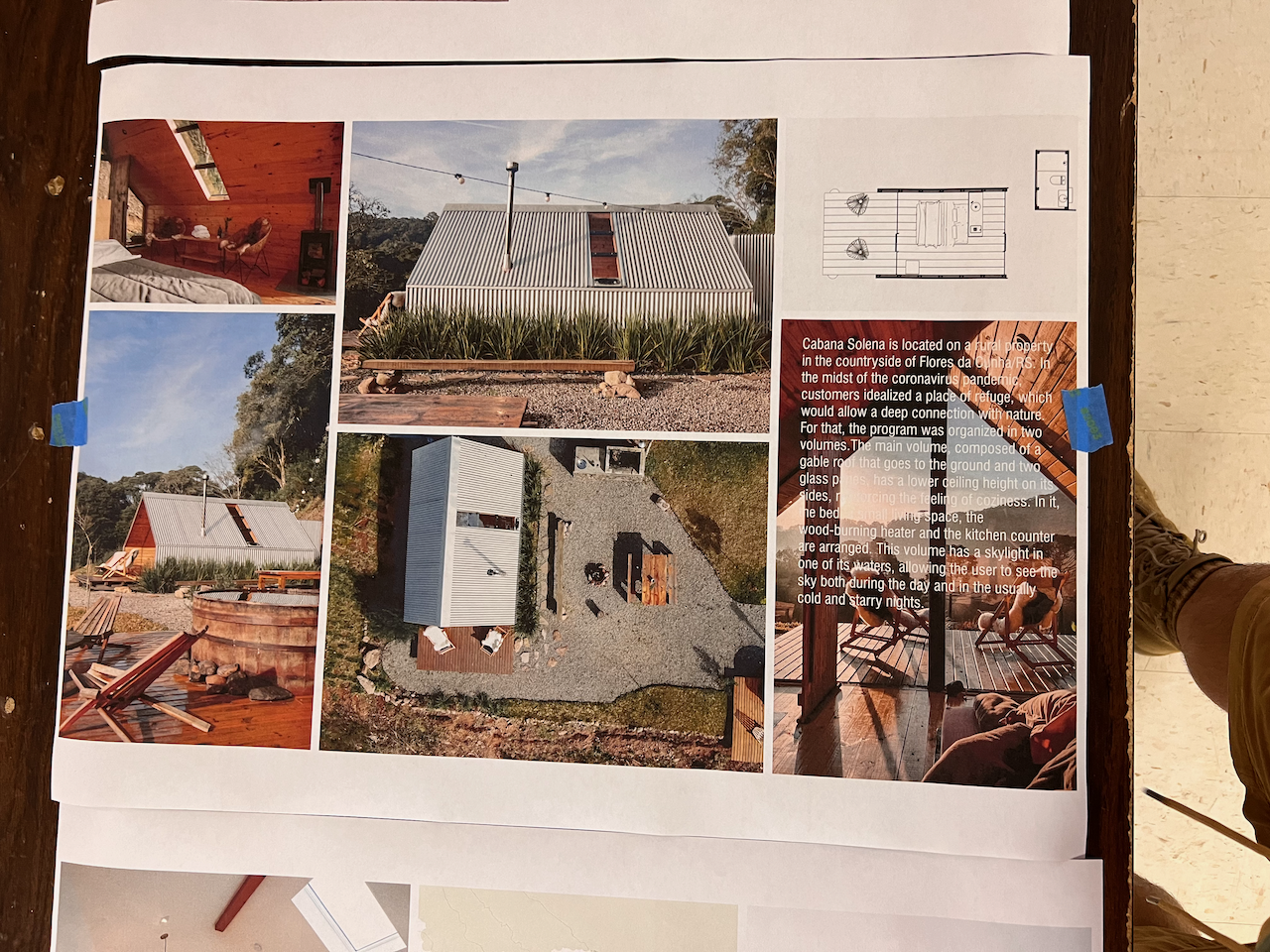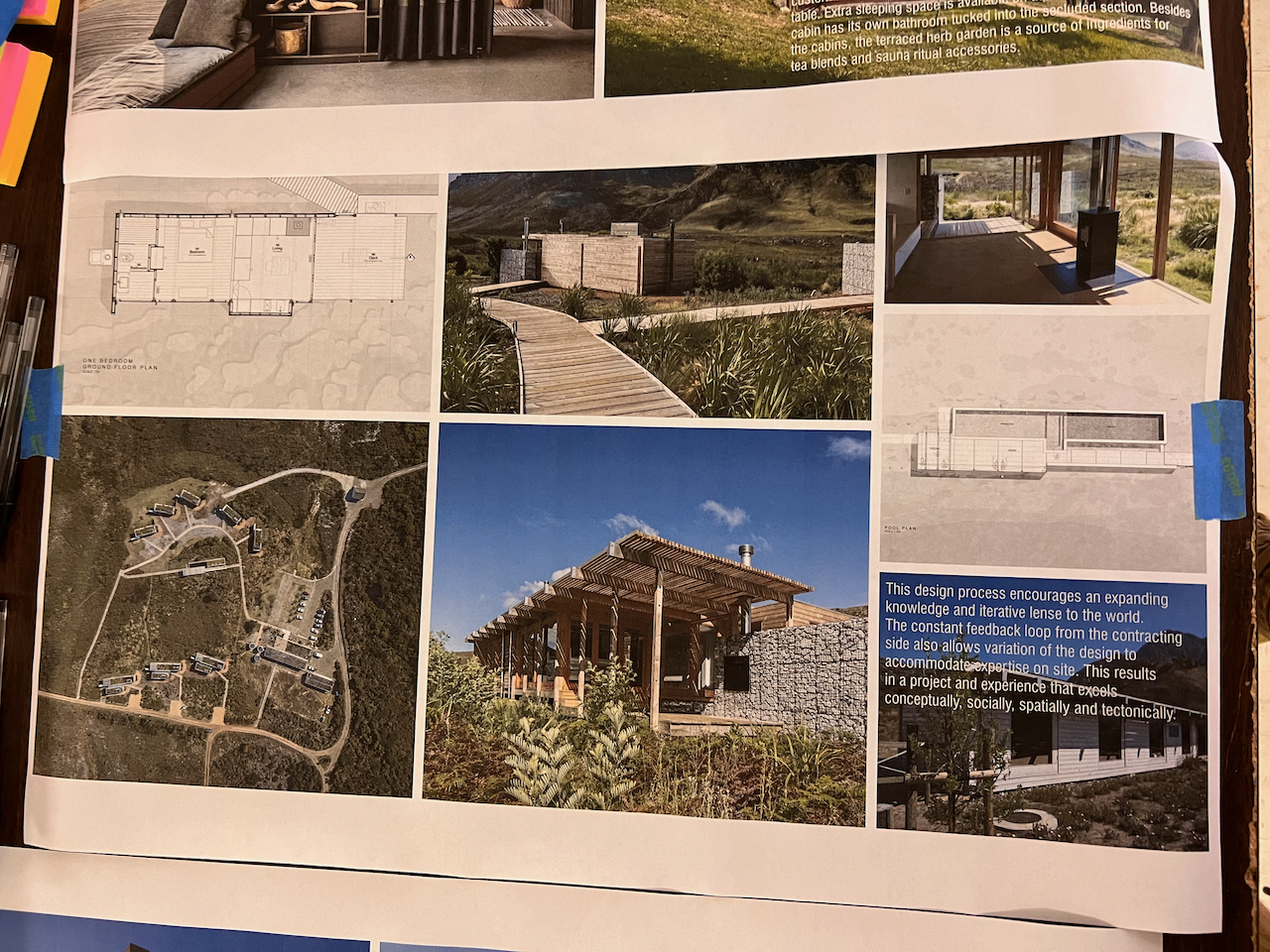
Flamingo Heights Retreat Center
The proposed Flamingo Heights Retreat Center by the Flamingo Blossom group occupies a 4.4-acre commercially zoned property adjacent to La Copine, asserting to present an innovative solution to the perceived over-saturation of Airbnbs in local neighborhoods. It purports to feature facilities for events, ceremonies, and receptions, along with twelve cottages.
Project Summary
The Flamingo Heights Retreat Center will include spaces for events, ceremonies, and receptions
4.4 acre commercially zoned property located next to a major tourist attraction (La Copine)
Twelve cottages with one or two bedrooms provide guests separate areas in a shared complex
Main event/retreat/welcome building featuring a kitchen, swimming pool, and changing rooms
Inspiration Presentation from Flamingo Blossom
Click Images to Enlarge
Community Meeting Review by SOD: Insights into the Flamingo Heights Retreat Center Project
May 5, 2024
On the evening of May 5th, residents of Flamingo Heights gathered at the Flamingo Heights Community Association for a pivotal discussion regarding the proposed Flamingo Heights Retreat Center. Led by project stakeholders Nicholas Fahey, Rob Massar, and Architect Brando McDonnell of Built By Terrain, the meeting aimed to introduce the community to the project and solicit feedback.
The session opened with a clear declaration: "we are not developers." This statement aimed to dispel any misconceptions and emphasize the group's identity as well-meaning individuals from Los Angeles with a vested interest in the community. Their insights, gained from their engagement with short-term rentals, provided valuable context for understanding the community's needs.
While their primary aim is to establish a successful business, the group expressed a commitment to eco-conscious principles and artistic innovation. Their vision for the Flamingo Heights Retreat Center seeks to redefine desert living while fostering community cohesion.
The meeting commenced with a brief overview of the project, followed by an invitation for attendees to share their thoughts using post-it notes placed on schematics and drawings. However, it became evident that many residents lacked a deep understanding of the project, leading to a flurry of questions and comments.
One prevailing sentiment was skepticism regarding the project's benefits and its necessity to the community. Attendees emphasized the pressing need for affordable housing, along with practical concerns such as parking limitations on the modest 4.4-acre plot.
Conversations also explored operational aspects of the retreat center, including staffing and facility utilization. The distinction between a community-oriented retreat center and the potential for individual unit rentals sparked debate, with some advocating for a clearer vision aligned with community needs.
During the meeting, one community member praised the project but urged the developers to further elucidate how it benefits the community, expressing a willingness to engage in ongoing dialogue.
Additionally, common concerns were raised about traffic, light pollution, water usage by guests, and the impact of the pool on the surrounding area.
An enlightening moment occurred when a resident raised concerns about the allocation of transient occupancy tax, highlighting a critical aspect of community financing often overlooked in development discussions.
The meeting, streamed live on Facebook and available for viewing on the FHCA page, served as a platform for community engagement. As the developers took note of the feedback and committed to further dialogue, residents expressed hope for a more comprehensive presentation in future meetings. Anticipation loomed for another community meeting with updates on the project's progress.
Recent successes, such as the denial of the flagship Flamingo Heights 640 project, emboldened residents to actively participate in shaping the future of their community.
Against the backdrop of a burgeoning desert development landscape, the Flamingo Heights Retreat Center emerges as a focal point of discussion. Rooted in eco-conscious principles and artistic innovation, the project seeks to redefine desert living while fostering community cohesion.
The group behind Flamingo Blossom maintains a connection to the area through their short-term rental units. With Nicholas Fahey's artistic vision, Rob Massar's legal expertise, and Architect Brando McDonnell's design acumen, the team aspires to create a sustainable oasis that honors the desert landscape.
In conclusion, the community meeting provided valuable insights into the Flamingo Heights Retreat Center project. As residents and developers navigate the feedback landscape, a collective endeavor to balance aspirations for sustainable development with community well-being unfolds, marking a pivotal chapter in the desert's evolution.
Additionally, it's worth noting that the project is pursuing a hotel designation with a Minor Use Permit (MUP) rather than a full Conditional Use Permit (CUP). A CUP typically entails a comprehensive review process by local planning authorities, offering community members numerous opportunities to voice concerns, imposing specific conditions to mitigate negative impacts, and ensuring ongoing oversight and compliance monitoring.














